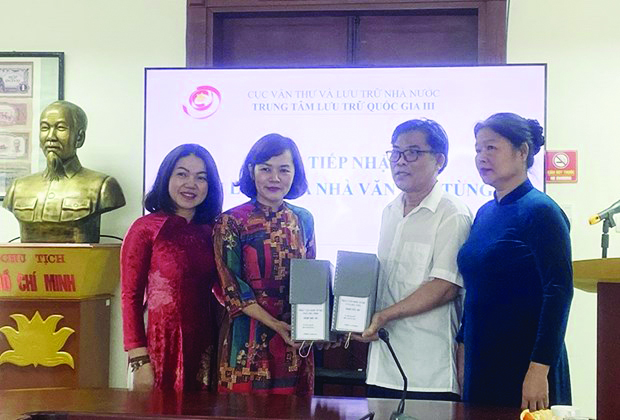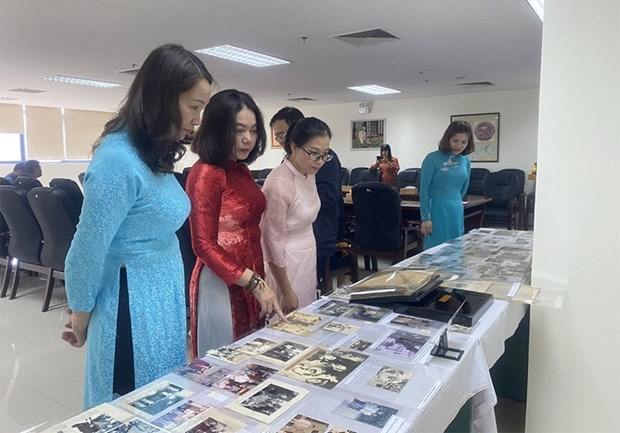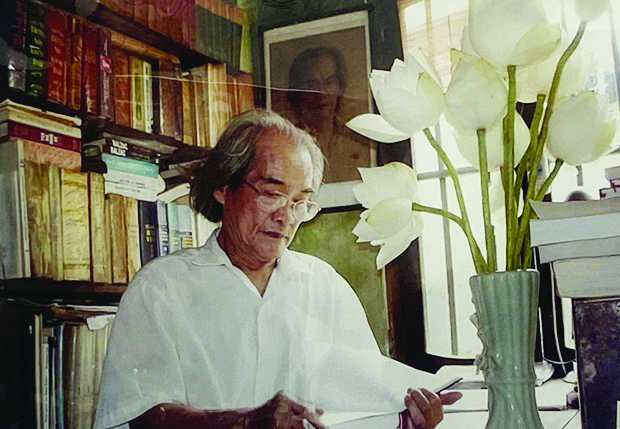HÀ NỘI More than 1,000 photos and documents on the activities of the Party, the State, and the personal life of late President Hồ Chí Minh and other key figures have been donated by writer Sơn Tùng's family to the National Archives Centre III.

A representative of National Archive Centre III receives precious documents from writer Sơn Tùng's family Photo courtesy of qdnd.vn
Trần Việt Hoa, Director of the National Archives Centre III, Department of Records and State Archives (Ministry of Home Affairs), said that these documents contain photos related to late President Hồ Chí Minh’s life, including many that have never been published.
The Centre also receives valuable documents about writer Sơn Tùng's life and career. This is the second time they received a large volume of documents from writer Sơn Tùng.

Photos were displayed in the ceremony. Photo courtesy of qdnd.vn
Hoa said that writer Tùng is highly esteemed for his writing about late President Hồ Chí Minh. She mentioned that every anecdote in his novel 'Green Lotus Bud', which depicts the childhood and early life of Hồ Chí Minh, serves as an exemplary lesson for people to learn and follow.
Bùi Sơn Định, the son of writer Tùng Sơn, spoke about his father's decision to donate valuable documents to the National Archives Center III. He shared that although he wished to keep the documents, it would be challenging to fulfil this desire. Obtaining the documents was a challenging process, and his parents had to go to great lengths to acquire them.
Currently, the documents have been temporarily arranged according to the provisions of the storage and follow strict preservation rules.

Writer Sơn Tùng. Photo courtesy of National Archives Centre III
Writer Sơn Tùng was born in 1928 in a poor family in Hoa Lũy village, Nghệ An province. He was active in revolutionary activities for 10 years (1944-1954) in the locality and met Nguyễn Thị Thanh, late President Hồ Chí Minh's sister.
After the end of the war against France, he came to Hà Nội to study and work. In 1967, he volunteered in the Southeastern Theater and was severely wounded.
After the war, he continued to write and learn about late President Hồ Chí Minh and his family, and wrote numerous works on the subject. VNS
OVietnam